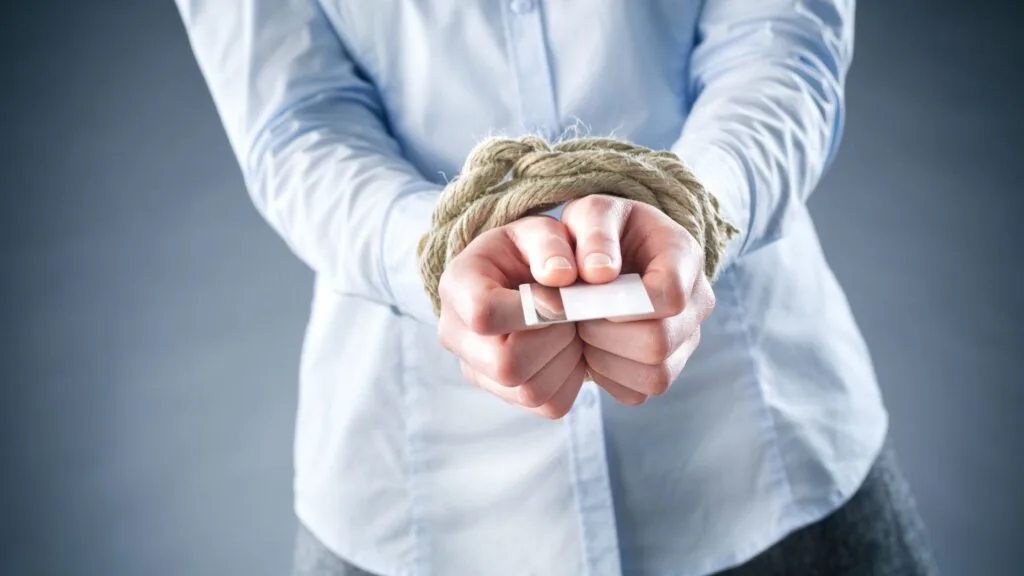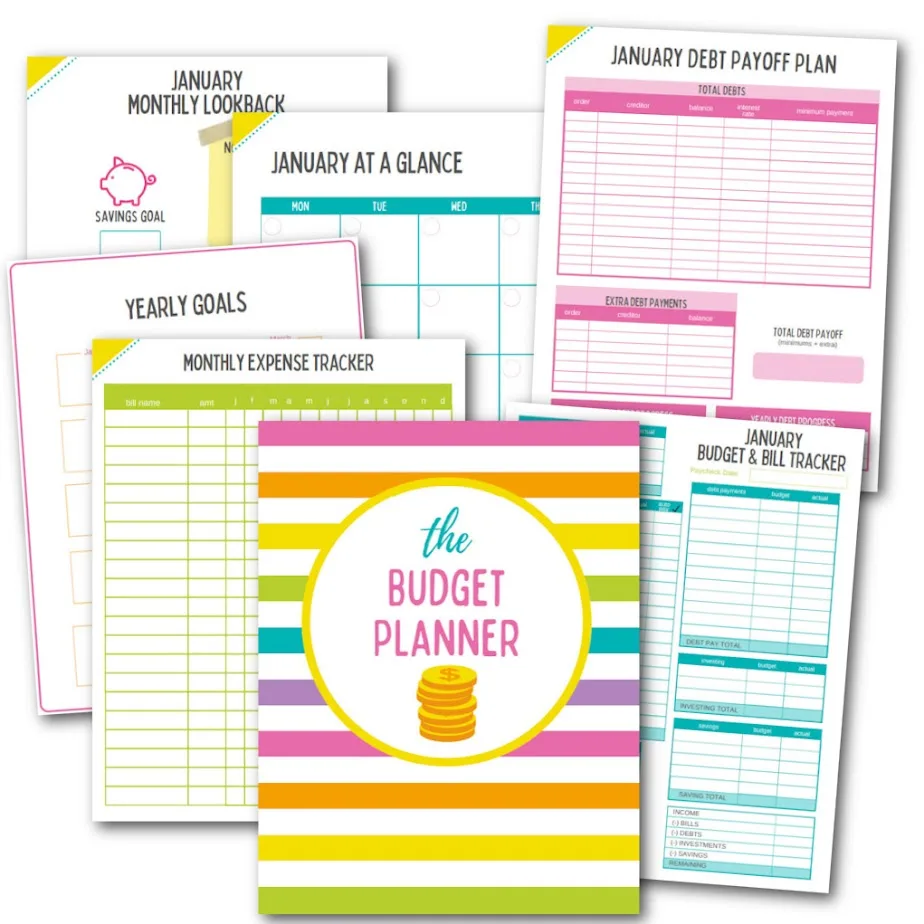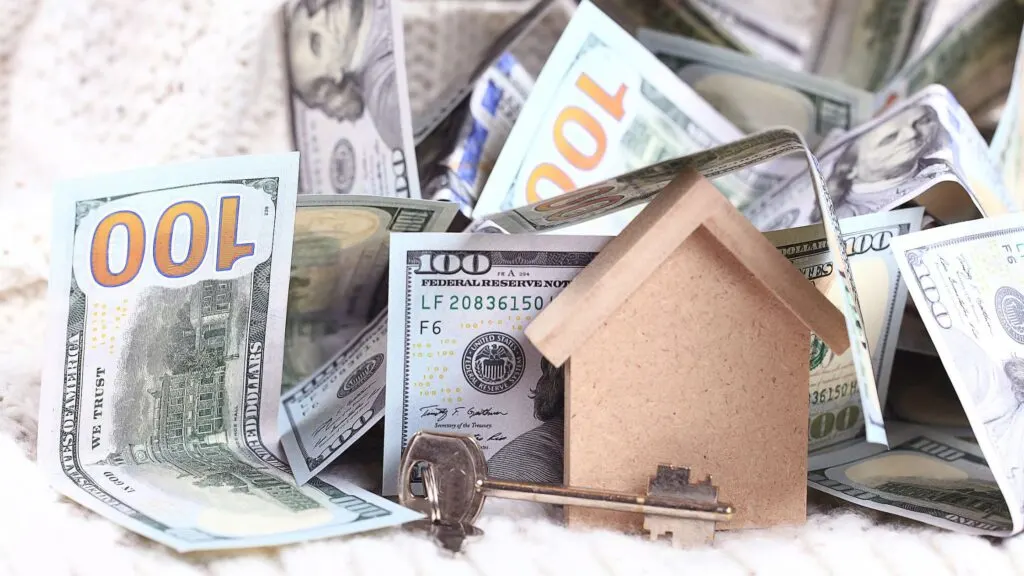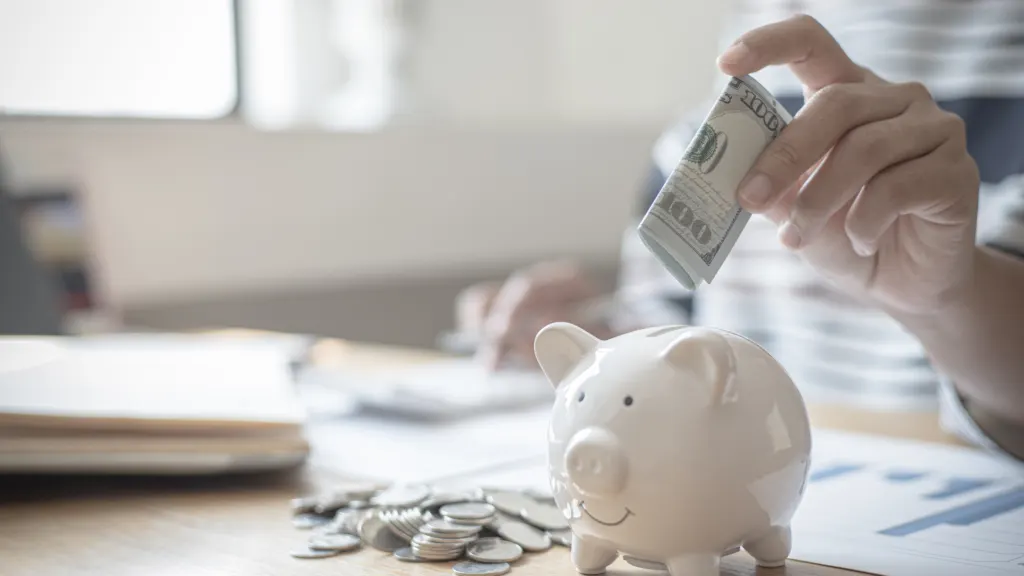So, let me start by admitting something. I love a good shopping spree as much as the next person, but my shopping spree includes clearance, coupons, and sales.
There’s just something about the sign of 70% off that gets my heart racing. But here’s the thing—sometimes, our spending habits get the best of us. And before we know it, we’re living beyond our means, EVEN if it’s a good deal.
But what does living beyond your means mean? Simply put, it’s when your outgoings (all the money you’re spending) exceed your income (the money you’re bringing in). This is the classic way people get into debt.
When you spend more than you make, you live above your means. This is a common reason most people have credit card debt. The thing is, it starts off small; you think, oh, it’s only $150; that’s not much debt. But before you know it, you continue to swipe and realize these credit card purchases are bad for your financial situation.
And now you may have to live on a ridiculously strict budget to help you climb back out. The good news is a strict budget won’t last forever as long as you continue to live below your means.
Living on less than what you make isn’t something our culture embraces. And now, as millennials, we are either all for saving or following our parent’s footsteps and accepting we will work until death.
Sounds pretty scary, right? It can be—but only if we let it.

And you may be saying, who wants to live on a strict budget? The beauty is once you reach financial freedom, your budget is almost freeing. The shift in your mindset while following a strict budget is worth more than gold.
You’ll take that mindset through everything else you do in life. And what will you have to show? A life that you enjoy living.
So today, I will share my top 10 signs that you might be living beyond your means and some friendly advice on how to reel it back in.

1. You’re Making Minimum Payments on Your Credit Cards
If you only make the minimum payments on your credit cards each month, you might be living beyond your means. Trust me, I’ve been there. One day, you’re swiping away; the next, you’re buried in debt.
Ah, credit cards. They’re a bit like chocolate cake, aren’t they? A slice here, a nibble there, and before you know it, you’ve polished off the whole thing and are left with crumbs and a debt problem.
I remember my first credit card. It was like having a magical piece of plastic that could make all my dreams come true. Fancy dinners? Check. New clothes? Check. Vacations? Double check.
It was all fun and games until the bill came and you realized it was only borrowed money. And let me tell you, seeing that balance was a wake-up call louder than any alarm clock.
You see, making minimum payments on your credit card debt might seem like a good idea in the short term. You’re avoiding late fees, keeping your credit score intact, and freeing up money for other things.
But here’s the kicker: when you only pay the minimum, you’re essentially treading water. You’re not making any progress toward paying off your personal debt. You’re probably sinking deeper into it.
Let’s break it down. When you purchase something and put it on your credit card, you’re borrowing money from the bank. Now, banks aren’t like your buddy who lends you five bucks and forgets about it. No, banks want their money back—with interest.
So, the longer you pay off your credit card balance, the more interest you’ll be charged. It’s like a snowball rolling down a hill, getting bigger and bigger until it’s an unstoppable force of financial despair.
And here’s the terrifying part: if you’re only making minimum payments, most of your money will pay off the interest, not the actual debt, which won’t be a significant change to your credit card balances.
It’s like trying to empty a bathtub with a teaspoon while the tap is still running.
So, what can you do? Well, the first step is acknowledging the problem. If you’re consistently making minimum payments, it might indicate that you’re living beyond your means.
And trust me, I get it. It’s easy to fall into the trap of instant gratification. But remember, every swipe of your credit card is a promise to pay back that amount of money in the future.
Next, take a look at your budget. Are there areas where you can cut back? Maybe you don’t need that daily latte or those monthly subscription boxes. Trust me, small changes can add up to big savings.
Finally, pay more than the minimum monthly payments. Even a little extra can significantly affect how quickly you pay off your debt and how much interest you’ll pay to those credit card companies.

2. You Have No Emergency Savings
An emergency fund is like a life jacket—it keeps you afloat when life throws you a curveball. If you don’t have one, it’s a sign that you’re living paycheck to paycheck. Remember your grandparents teaching you the importance of a rainy day fund?
Well, let’s chat about this. Imagine cruising on a boat and sipping your favorite drink; life’s good. Then, out of nowhere, a storm hits. The waves are crashing, the wind is howling, and your boat? It’s rocking like a cradle in a tornado. In that moment, what do you wish you had? That’s right, a life jacket.
Now, replace the storm with any financial emergency—your car breaks down, your pet needs surgery, or you lose your job. These are the unpredictable yet inevitable storms of life. And your life jacket? That’s your emergency savings.
If you don’t have an emergency fund, you sail without a life jacket. Sure, the sun might be shining now, but when a storm hits (and it will), you’ll find yourself sinking into a sea of debt and financial stress. And let me tell you, swimming in that sea is about as fun as stepping on a Lego barefoot.
You see, an emergency fund isn’t just about money. It’s about security. It’s about knowing that when life decides to play hardball, you’ve got a safety net. It’s about being able to sleep at night, knowing you can handle whatever comes your way.
And it’s not just for the big stuff, either. An emergency fund also covers those small, unexpected expenses that can derail your budget faster than a chicken running from the coop.
You know, things like your kid deciding to test if his toy car can fly and ending up with a broken window. Or your refrigerator deciding to take an unscheduled vacation in the middle of summer.
Per the sources I found, maintaining an emergency savings of $500 to $1,000 allows you to meet these unexpected financial challenges quickly. Ideally, you want to set aside enough emergency cash to cover at least six months of living expenses.
But here’s the kicker: an emergency fund isn’t a luxury—it’s a necessity. If you’re living paycheck to paycheck, it’s not a question of if you’ll need it, but when. And when that time comes, you’ll be thanking your lucky stars you had the foresight to prepare.
So, my friends, if you find yourself without an emergency fund, it’s high time you start building one. Remember, it’s never too late to start saving. And in this unpredictable journey, we call life, having a financial buffer can make all the difference.
Now, for those who say, what about a job loss? The important thing is always to try to save, and how important a financial safety net is, BUT if you are currently unemployed, check out this article on tips.

3. You’re Ignoring Bills
Ah, the old “out of sight, out of mind” trick. We’ve all done it—pushed that pesky bill to the back of the drawer, hoping it’ll just disappear until we get more money. Spoiler alert: it doesn’t. If you don’t change your financial habits, you’ll never have enough money for the bills.
Set up automatic payment on your phone if this is an issue.

4. Shopping at High-End Stores
Now, don’t get me wrong. There’s nothing wrong with treating yourself once in a while.
One reason people stay in debt is because they are living a name-brand lifestyle. It’s time to reassess if your closet is filled with designer labels while your bank account is dwindling.
Did you know you can find many designer brands at thrift stores with the tags still on? Check out my latest obsession for getting new clothes for less than a buck here.

5. You Don’t Have Any Savings
If you’re not regularly putting some money away, no matter how small, it could be a sign that you’re living beyond your means.
Now, don’t get me wrong. I’m not saying you should be stashing away cash like a squirrel hoarding nuts for the winter. But if your bank account looks emptier than a movie theater showing a flop film, it might be time to face the music: you could be living beyond your means.
I mean, come on. We’ve all been there. I remember this one time I spent my entire paycheck on a fancy new gadget, only to realize I had zero savings for the rest of the month.
I ended up eating ramen for two weeks straight. Let me tell you, folks, the novelty of instant noodles wears off real quick.
Here’s the thing, though. Savings aren’t just about having a safety net for when life decides to throw you a curveball (and trust me, it will). It’s also about giving yourself the freedom to live on your terms.
Want to take a spontaneous trip to the beach? Go for it. Eyeing that shiny new bike? It’s yours. With a steady saving habit, these dreams can become realities without making your financial life a nightmare.
But how do you save when your budget is tighter than a pair of skinny jeans after Thanksgiving dinner? Well, first things first: start small. It adds up over time, even if it’s just a few bucks a week. Think of it as a snowball rolling down a hill—it starts off tiny, but before you know it, you’ve got yourself a giant boulder of savings.
Oh, and don’t forget to track your spending so you can save money. Grab my ultimate budget planner here to help you.
Next, make it automatic. Set up a direct deposit from your paycheck to your savings account. That way, you’re saving without even thinking about it. It’s like having a personal financial assistant, except this one doesn’t require a salary.
Lastly, and this might sting a bit, take a hard look at your spending. It might be time to cut back if you’re splurging on daily lattes or monthly subscriptions you barely use. Remember, every little bit helps.
For tips on how to save money read this now.

6. Your Housing Costs More Than 30% of Your Income
This one is a hard pill for many to swallow. Who doesn’t want to live in an expensive apartment or house? But if rent or mortgage payments are eating up more than a third of your income, it’s a red flag. Not many people are going to consider moving when their mortgage is high.
There are so many excuses, but 30% is a good chunk, so consider it seriously.
7. You’re Not Saving for Retirement
I know, I know. Retirement seems like a lifetime away. But the earlier you start saving, the better off you’ll be in the long run with your personal finances. None of us want to work until we die in the first place, so let’s end that whole mindset.
See the whole pattern of saving money?
8. You’re Living Paycheck to Paycheck
It’s a classic sign that you live beyond your means if you constantly wait for payday, for tips on how to end the paycheck-to-paycheck cycle read this.

9. You Can’t Afford Health Insurance
Health insurance is a must, folks. If you can’t afford it, it’s time to take a good, hard look at your financial decisions. Medical expenses can add up quickly, and although financial experts are starting to look at medical debt not affecting your credit score as much, none of us like having a mountain of debt.
Many of us get health insurance through our employers, so we may think that’s the final verdict.
First, did you know you can buy a policy directly from a health insurance company? Yep, that’s right. No middleman, no unnecessary fees. Just you and the insurer, hashing out the details. Kind of feels empowering.
Then there’s the Bronze health insurance plan. It’s got the cheapest rates and even offers free preventive care. Your pay depends on your income, so it’s worth trying if you’re on a tight budget.
Now, I know what you’re thinking. “But what if I’m unemployed, or my job doesn’t offer health insurance?” Well, the Health Insurance Marketplace has got your back. They offer affordable plans based on your income and household size. Plus, they have tax credits to lower your monthly insurance payment.
And here’s a pro tip for you: check if you might qualify for Medicaid or Children’s Health Insurance Program (CHIP) based on your income. You could save a pretty penny!
You’re working, but your employer’s health insurance plan is more expensive than a night at a five-star restaurant. Have you thought about negotiating with them?
Many employers are open to discussing healthcare options. Be prepared, be informed, and don’t hesitate to ask for what you need. Make sure when you do have health insurance, you stay in the network.
Finally, consider a high-deductible plan. Now, I know that might sound counterintuitive. “Why would I want to pay more out-of-pocket?” you ask. Well, these plans often have lower monthly premiums. So, if you’re generally healthy and don’t need much medical care, this could save you money in the long run.
10. You’re Regularly Overdrawing Your Bank Account
If you frequently see dollar signs in the red when you log into your bank account, it’s a definite sign that you’re living beyond your means. Take a good look at your unnecessary expenses when you figure out your budget.
Now, I know this might seem overwhelming. But don’t worry—I’ve got some best practice tips to help you get back on track. Start by creating a budget and sticking to it. Grab my budget planner here.
Trust me, it’s not as scary as it sounds. And remember, living below your means doesn’t mean you have to feel deprived. It’s all about finding a balance between what you want and what you need.
So, let’s make a pact to start living within our means. We’ll cut back on the splurges, start saving for the future, and maybe—just maybe—we’ll be able to afford that dream vacation we’ve been pinning on Pinterest.
Remember, financial stability isn’t about having the biggest house or the most expensive car. It’s about living a life that’s within our means—a life that lets us sleep soundly at night, knowing we’re prepared for whatever comes our way. And trust me, there’s no better feeling than that.
Let’s do this, friends. Let’s take control of our finances and live the life we deserve. I believe in you!
